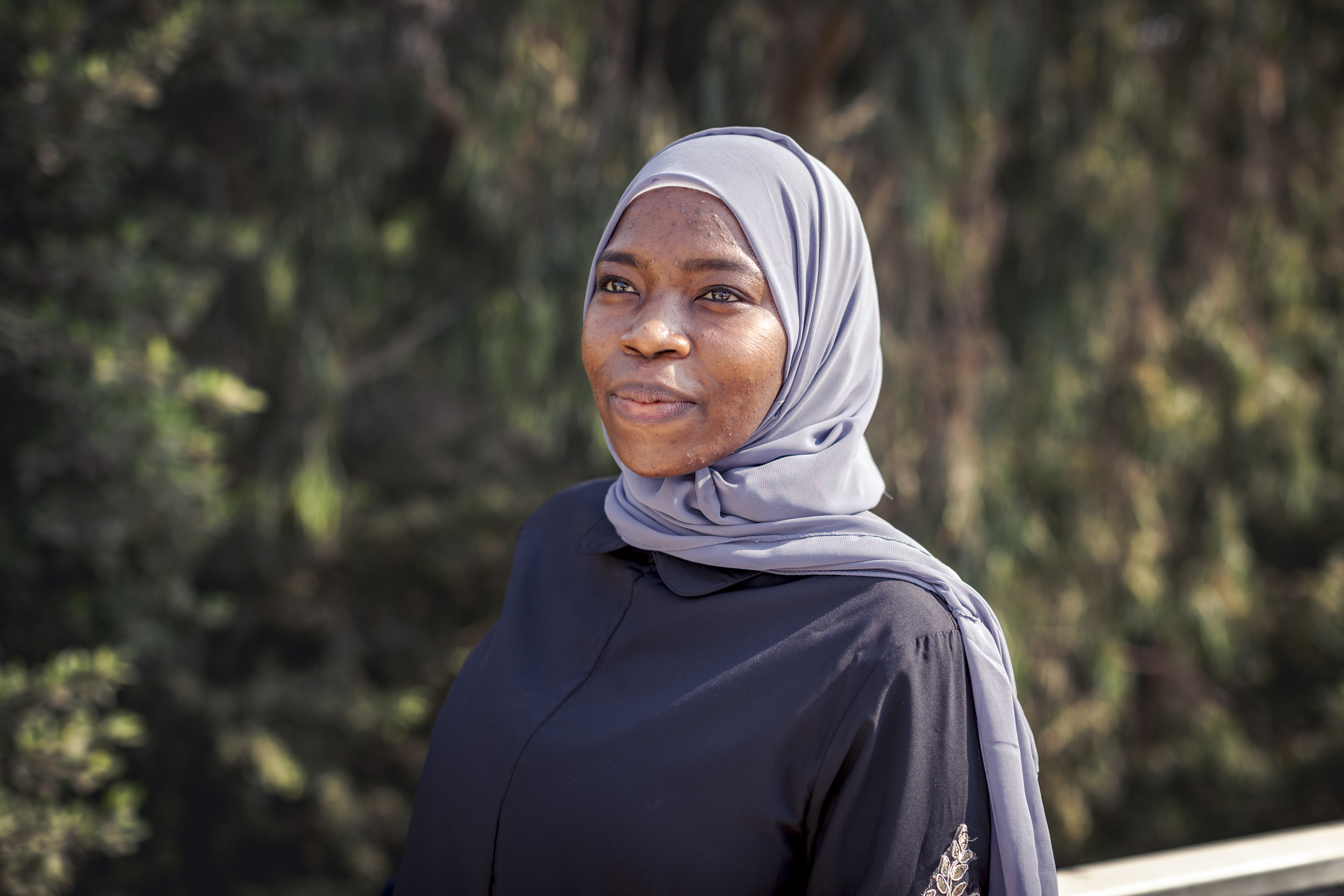Indigenous Kuna children and Colombian refugees live and study together in Panama
Indigenous Kuna children and Colombian refugees live and study together in Panama

PUERTO OBALDIA, Panama, December 29 (UNHCR) - On the southern tip of Panama's Caribbean coast in the town of Puerto Obaldia, local indigenous Kuna schoolchildren are living with Colombian refugees and studying alongside them in a secondary school set up with help from a UNHCR partner and designed to benefit the whole society.
Perched on the windowsill of the simple wooden house where she now lives, 11-year-old Lucia, an indigenous Kuna from Panama, waits for her school friend Marie Lopez, whose mother is a Colombian refugee, to return home. Since Lucia moved in with the Lopez family last year, the two have been inseparable - living and studying together.
Until last year, Lucia lived with her family in a small village more than a day's walk from Puerto Obaldia, the only town in a string of small pueblos scattered along the southern tip of Panama's Caribbean coast in Kuna Yala province.
Panamanians, Colombians, and indigenous Kuna peoples live mixed together in Puerto Obaldia. Close to the border with Colombia, the town provided a safe haven for many Colombians fleeing the armed conflict in the late 1990s. About a third of the town's inhabitants are Colombians.
But, schools are scarce in this underdeveloped part of the country, and Puerto Obaldia has the only secondary school in the area. It opened two years ago after fervent lobbying by Colombians and local Panamanians with the support of Pueblos de Bosque, UNHCR's partner in the area. The school is now playing a unique role in knitting the area's diverse communities together.
Unlike many indigenous children, forced to stop their schooling because they cannot make the daily trip to school in town, Lucia was lucky. She is one of 23 young Kunas who have been given the chance of further education, thanks to the generous welcome of Colombian families in Puerto Obaldia who have taken them into their homes.
Last year, Colombian refugee Marisol Lopez, and her local Panamanian husband decided to have three young Kuna school children come and live with them - free. Living on the modest income of her husband and money Marisol earns from the small bakery she started with the help of a UNHCR micro-loan, the Lopez' are putting their own and the Kuna children through school.
"Of course it is difficult to feed six children but we are doing it free of charge so that they can study," says Marisol. She was moved to take in the three children because she wanted to give back something to the local community that had received her and many other Colombians in need with such generosity, she added.
Most of the Colombians in this region of Panama have so-called Temporary Humanitarian Protection (THP). While temporary protection provides a safe haven from violence, it also limits the rights of refugees to work and travel freely within the country. UNHCR has been working closely with the Panamanian government to reform this system and there have been encouraging developments in recent weeks.
In spite of the restrictions of the THP status, Colombians in Puerto Obaldia have integrated well - they marry local Panamanians, create families, and contribute to the town's economy by setting up small businesses like the restaurant opened by Señora Canbe, another refugee from Colombia who has taken a Kuna girl into her home so she can finish her schooling.
"She needed a place to stay for the school year so that she can study, so of course I said she could stay with me," said Señora Canbe, simply.
Diligently completing her homework on the restaurant's balcony is 15-year-old Estrella, who has been living with Señora Canbe for the past few months. She takes a break from her studies to chat with her older brother Fernando, who has dropped by for a short visit.
Fernando always comes to see his sister when he is in Puerto Obaldia selling molas, a traditional Kuna cloth, to the few tourists who pass through town. Lack of jobs and limited education leave him with very few work options. Estrella, who wants to continue her education for as long as possible, will have more chances.
Everyone in Puerto Obaldia understands the value of education. And, the mutual support, provided without hesitation or question between Colombians, Panamanians and Kuna, strengthens the spirit of this small community as they try to do the best they can to help each other.
By Erin Maxwell in Puerto Obaldia, Panama








